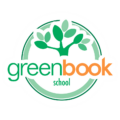Those who learned to read and write do not realize the whole process that they had to “go through” developing skills that led them to formal literacy around the age of six or seven.
Most people don’t realize it, but the literacy process begins in pregnancy, when the baby hears the sound of his or her mother’s voice. After birth, songs, reading aloud and rhyming helps young children develop fundamental skills for learning to read and write.
It is through play, in Early Childhood Education, that the child develops logical reasoning, attention, concentration, motor coordination, sensory perception, body awareness and balance.
In Early Childhood Education, the teacher, in addition to stimulating the development of these skills, performs a very important work regarding the socio-emotional aspect of the student: she creates situations in which the student learns to deal with frustration and anxiety, as well as to develop the self-esteem and self-confidence that are important skills for literacy. In this way, the child is well prepared, in several aspects, for the beginning of formal literacy in the 1st grade of Elementary School.
Written by Teacher Andrea Tralci – Kindergarten II’s Portuguese Teacher, in Early Childhood Education of Green Book School.


